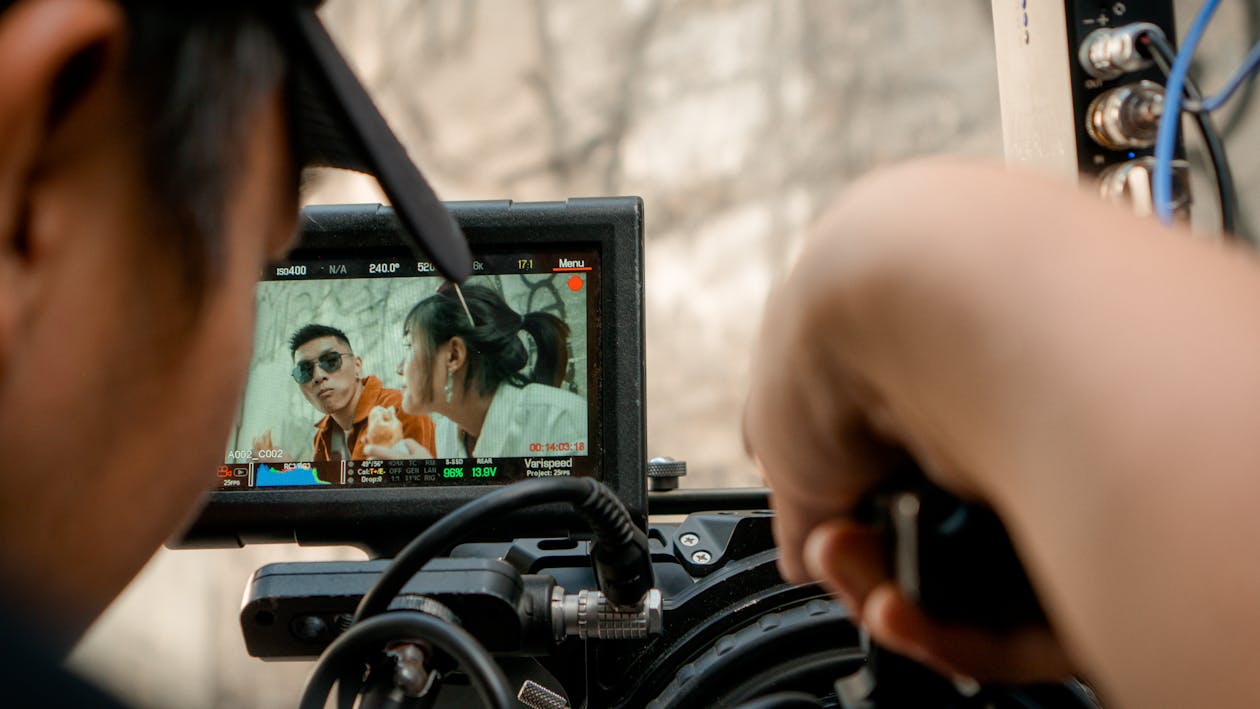Cinematic Study: How to Watch Movies Like a Filmmaker
Ever wondered how filmmakers can turn a simple scene into a cinematic masterpiece? Whether it’s the breathtaking visuals, the compelling storytelling, or the seamless editing, every great film has a lot to teach us. If you’re an indie filmmaker looking to elevate your craft, learning from films is one of the best ways to do it.
Throughout this post, we’ll explore various aspects of filmmaking that you can learn from films. From analyzing storytelling and cinematography to understanding editing and sound design, we’ll cover it all. By adopting a filmmaker’s lens, you’ll start to see movies as a treasure trove of knowledge rather than just a source of entertainment.
Why Filmmakers Should Study Films
Importance of Continuous Learning in Filmmaking
The world of filmmaking is ever-evolving, with new techniques, styles, and technologies emerging constantly. For indie filmmakers, staying ahead of the curve means embracing continuous learning. One of the most effective ways to do this is by learning from films. By watching a wide range of movies, you can discover new methods, understand current trends, and refine your own unique style. This ongoing education is essential for keeping your work fresh and relevant.
How Watching Movies with a Critical Eye Can Enhance Filmmaking Skills
When you start watching movies with a critical eye, you transform each viewing into a masterclass. This approach allows you to deconstruct every element of the film, from narrative choices to visual composition. Learning from films involves observing how directors handle pacing, how cinematographers frame shots, and how editors create seamless transitions. This detailed analysis helps you to incorporate similar techniques into your projects, elevating the overall quality of your work.
Breaking Down the Elements of Film

Storytelling and Screenwriting
At the heart of every great film is a compelling story. To truly benefit from learning from films, start by analyzing the narrative structure. Pay attention to how the story unfolds, noting the setup, conflict, climax, and resolution. Observe character development—how are the characters introduced, what motivates them, and how do they evolve? Dialogue is another crucial element; notice how it reveals character and advances the plot. By dissecting these aspects, you can improve your own screenwriting skills, ensuring that your stories captivate and engage your audience.
Cinematography
Cinematography is the art of visual storytelling. When learning from films, focus on how scenes are framed and shot. Look at the composition of each shot and consider why the cinematographer chose that particular angle or lighting. Pay attention to the use of color palettes and lighting schemes—how do they set the mood or highlight certain themes? Camera movements and angles also play a critical role in storytelling. By studying these techniques, you can learn how to use visual elements to enhance the narrative and evoke specific emotions in your viewers.
Editing
Editing is where the magic of film truly comes together. It determines the pacing and rhythm of the story. While learning from films, analyze how editors cut between scenes and transitions. Notice the use of techniques like jump cuts, cross-cutting, and match cuts. How do these techniques affect the flow and tension of the film? Good editing maintains continuity while building emotion and suspense. By understanding these editing choices, you can apply similar strategies to your own projects, ensuring your films have a smooth and engaging flow.
Sound Design and Music
Sound design and music are vital components that often go unnoticed. To get the most out of learning from films, pay close attention to the soundscape. Listen to how sound effects, ambient noise, and dialogue are mixed to create a realistic environment. Analyze the film’s score—how does it enhance the story and affect the audience’s emotions? Notice how music cues are used to build tension or highlight key moments. By understanding the importance of sound design and music, you can create a richer and more immersive experience in your own films.
Directing and Performance
The director’s vision is the driving force behind a film. When learning from films, observe the director’s style and how they bring the story to life. How do they guide actors’ performances to ensure authenticity and depth? Watch how scenes are blocked and staged to convey meaning and emotion. Analyze the interactions between characters and how directors use visual and auditory elements to tell the story. By studying these techniques, you can develop your directing style and learn how to elicit powerful performances from your actors.
Practical Tips for Watching Movies Like a Filmmaker

Active Viewing vs. Passive Watching
To truly benefit from learning from films, it’s crucial to engage in active viewing rather than passive watching. Active viewing means you’re not just sitting back and enjoying the movie; you’re analyzing and critiquing each element as it unfolds. Take notes on scenes that stand out, moments that evoke strong emotions, or techniques that seem particularly effective. Rewind and rewatch key scenes to understand why they work so well. By actively engaging with the film, you’ll gain deeper insights into the filmmaking process and be able to apply these lessons to your own projects.
Use of Analytical Tools and Resources
There are many tools and resources available that can enhance your learning from films. Screenwriting software, like Final Draft or Celtx, can help you analyze a movie’s script and understand its structure. Online platforms like MasterClass offer courses from renowned filmmakers who break down their processes and techniques. Books on film theory and criticism, such as “Story” by Robert McKee or “In the Blink of an Eye” by Walter Murch, provide valuable insights into the art and craft of filmmaking. Utilizing these resources can deepen your understanding and provide practical knowledge that you can apply to your own work.
Joining Film Communities and Discussions
One of the best ways to expand your learning from films is by joining film communities and participating in discussions. Engaging with other filmmakers, both online and offline, allows you to share insights and learn from different perspectives. Online forums, social media groups, and local film clubs are great places to start. Discussing films with peers can reveal new interpretations and techniques that you might have missed. Additionally, attending film festivals and workshops can provide opportunities to network and learn from industry professionals. Collaboration and discussion are key components of the filmmaking journey, enriching your understanding and inspiring your creativity.
Common Mistakes to Avoid When Studying Films

Overanalyzing and Losing the Joy of Watching Movies
One of the biggest pitfalls when learning from films is overanalyzing to the point where you no longer enjoy the movie. It’s important to strike a balance between critical analysis and appreciation. Remember why you love films in the first place and allow yourself to be immersed in the story. Overanalyzing every detail can lead to burnout and diminish your passion for filmmaking. To avoid this, dedicate specific viewings for pure enjoyment and others for detailed analysis.
Ignoring the Subjective Nature of Filmmaking
Filmmaking is an art, and like all art, it is highly subjective. What works for one filmmaker or audience might not work for another. When learning from films, it’s crucial to recognize that different styles and techniques suit different genres, stories, and personal tastes. Avoid the mistake of thinking there is only one “right” way to make a film. Embrace the diversity of filmmaking approaches and be open to experimenting with your own unique style.
Focusing Too Much on Technical Details at the Expense of Story and Emotion
While technical proficiency is important, focusing solely on technical details can detract from the storytelling and emotional impact of a film. When learning from films, it’s easy to get caught up in the mechanics of cinematography, editing, and sound design. However, never lose sight of the story and the emotions it aims to convey. The most memorable films resonate because of their ability to connect with audiences on an emotional level. Ensure that your technical analysis always considers how these elements serve the story and enhance the viewer’s experience.
Neglecting to Consider the Context of the Film
Another common mistake when learning from films is not considering the context in which the film was made. Historical, cultural, and technological factors can greatly influence a film’s style and choices. Understanding the context helps you appreciate why certain decisions were made and how they contributed to the film’s success. Research the background of the films you study to gain a fuller understanding of their production and impact.
Copying Without Innovating
It’s natural to be inspired by great films, but copying them without adding your own innovation can stifle your creativity. Learning from films should be about understanding principles and techniques, not replicating them exactly. Use the insights you gain to inform and inspire your own original ideas. Innovation is key to standing out in the filmmaking industry, so always strive to bring something new and personal to your projects.
In Conclusion
Learning from films is an invaluable practice for any aspiring filmmaker. By studying the intricate details of storytelling, cinematography, editing, sound design, and directing, you can gain a deeper understanding of what makes a film successful. This knowledge empowers you to enhance your own projects and grow as a creative professional. The films you watch become not just sources of entertainment, but rich, educational resources that contribute to your filmmaking journey.
Now that you’ve seen how beneficial learning from films can be, it’s time to start your own cinematic study journey. Begin by watching movies with a critical eye, taking notes, and discussing your insights with fellow filmmakers. Use the tools and resources available to you, and don’t hesitate to rewatch films to grasp their techniques fully. Remember, every film you watch has something to teach you, whether it’s a classic masterpiece or a modern indie gem.
Lastly, if you’re working on a short film of your own but are in a tight spot when it comes to funding, we may have the answer. By entering our short film funding contest, you could earn up to $10,000 in funding for the production of your short film. We fund both narrative shorts and documentary shorts. Plus, we ask for just one sentence that explains the premise of your short film and why you need our help, as opposed to other funding avenues that require full scripts. Head to our entry page to learn more and enter!